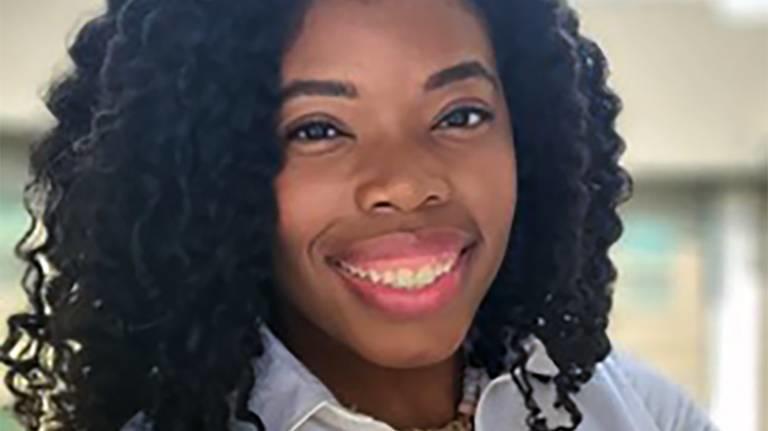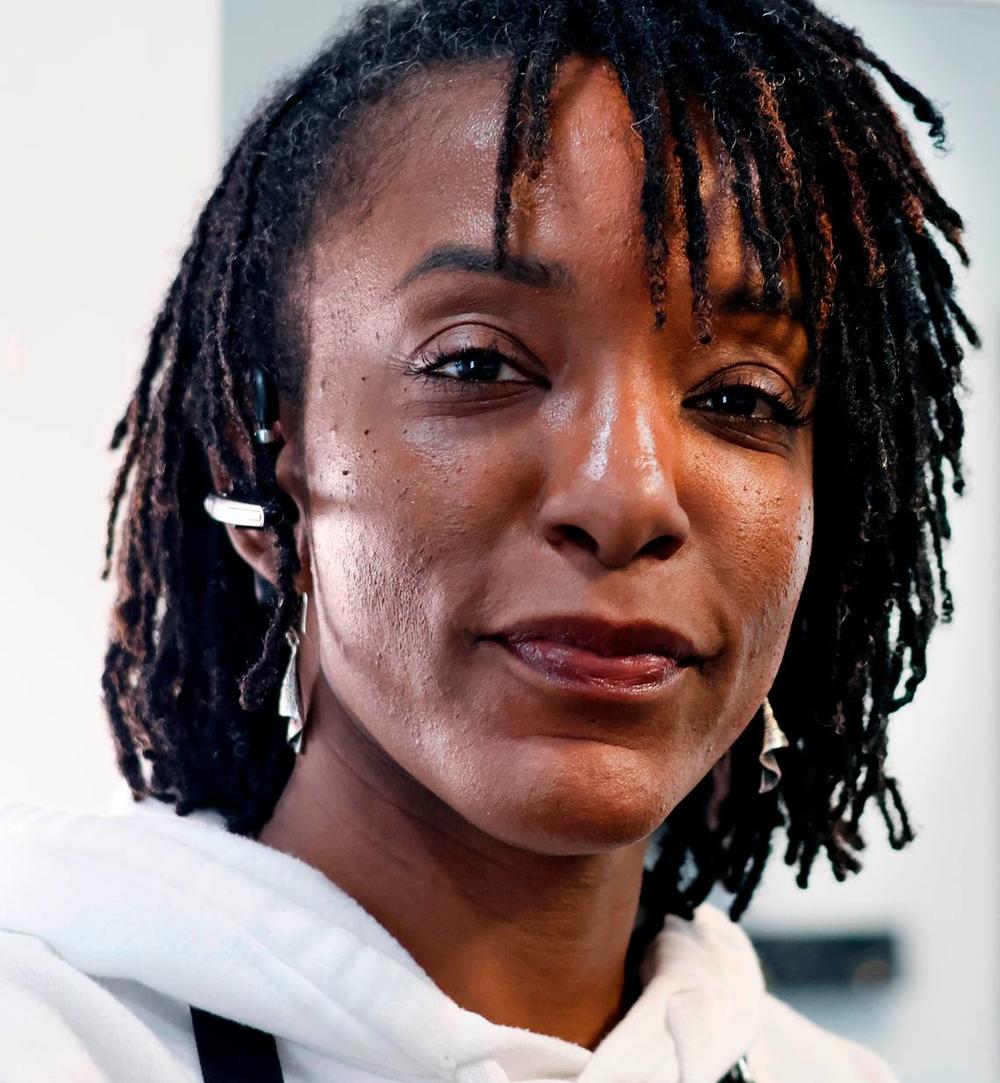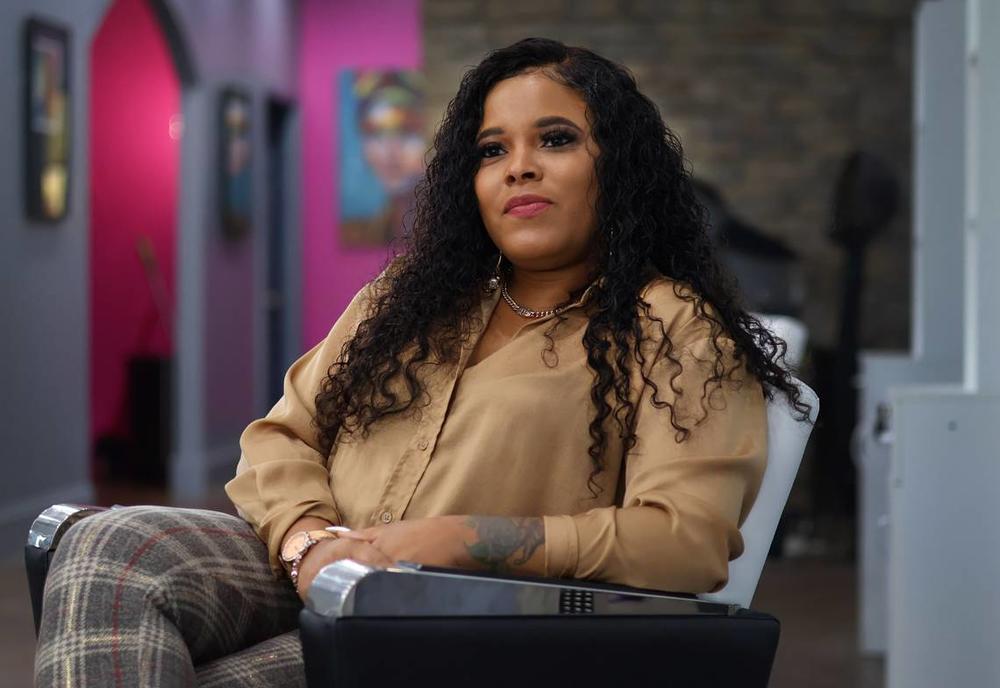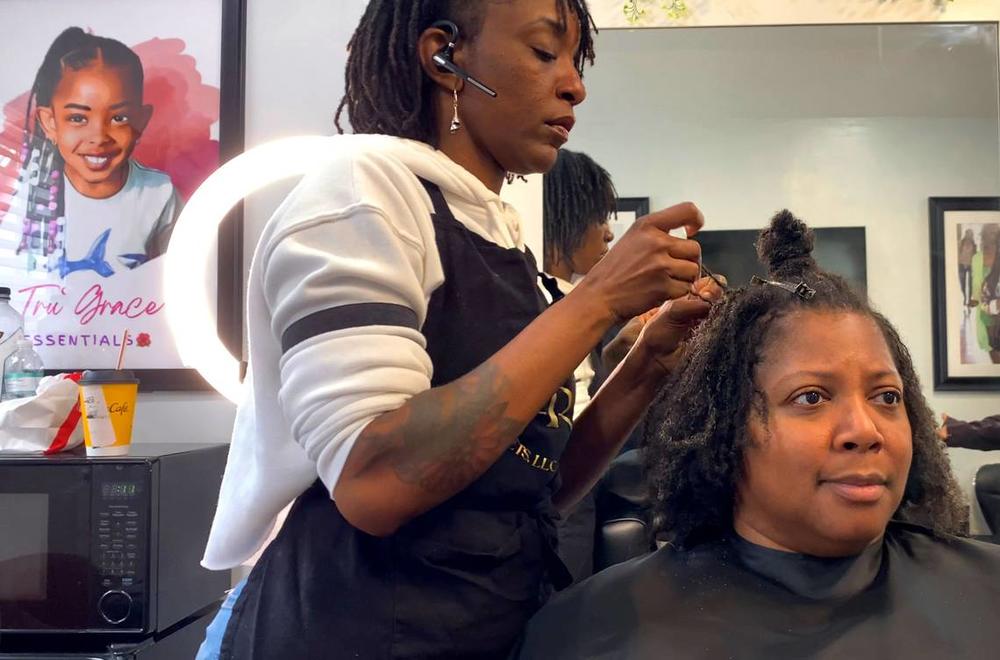
Caption
Atlanta resident Kiara Burroughs was the first of several Georgia women to file a lawsuit against hair relaxer companies over health concerns with the products.

Atlanta resident Kiara Burroughs was the first of several Georgia women to file a lawsuit against hair relaxer companies over health concerns with the products.
Four Georgia Black women filed separate lawsuits against major chemical hair relaxer manufacturers after exposure to the products was linked to cancer and uterine fibroids.
A study published in the Journal of the National Cancer Institute in October 2022 using data from more than 33,000 women found those who reported using hair straightening products were almost twice as likely to have developed uterine cancer than those who did not.
Although the study didn’t find that the link between using these products and uterine cancer risk was different by race, the effects were greater for Black women because they were more likely to use the products.
After the study was published, women across the country began filing lawsuits against manufacturers, including thousands of complaints in Illinois.
Attorney Danielle Ward Mason filed lawsuits on behalf of four Georgia women against manufacturers including L’Oreal and Strength of Nature in the State Court of Chatham County.
These women continuously used hair relaxers for years, according to the complaints, and later experienced health problems including uterine fibroids, breast cancer and endometrial cancer.
The study that the lawsuits are based on recognizes the need for more research, L’Oreal said in a statement, and one researcher acknowledged there could be other potential contributing factors to the health outcomes.
“While we understand the desire of each plaintiff to find answers to and relief from their personal health concerns,” the statement reads. “We are confident in the safety of SoftSheen-Carson’s products and believe the allegations made in the lawsuits have neither legal nor scientific merit.”
Each of the four Georgia lawsuits seek between $1.7 million and $2 million on counts including fraud, general negligence, negligent failure to warn about risks and design or manufacturing defects.
The lawsuits argue companies fraudulently misrepresented the products as safe and marketed them with images of young girls who never actually got their hair relaxed. Instead, other straightening tools and products were used to achieve the look of having a relaxer.
Mason’s plaintiffs told her they want to hold the hair relaxer manufacturers accountable for the harm done to them, she told the Ledger-Enquirer.
“Many of them have said to me that the money is not what they’re after,” Mason said. “Accountability is always first on the list. And then second on the list is if you can’t make these products any safer, then they need to be removed.”
Atlanta resident Kiara Burroughs was the first to file a claim in June 2023 followed by Pamela Barney-Culbreth, Toya Dickerson, and Erica Latimer who filed at the end of December.
Burroughs started using hair relaxers around the age of 6 and stopped in 2014, according to her complaint, resulting in about 19 years of continuous exposure as she received regular touch ups.
She was diagnosed with uterine fibroids at 29 years old in 2018 after experiencing heavy bleeding and pain during her periods. Burroughs underwent her third myomectomy, a surgical procedure to remove uterine fibroids, in June 2022. But she still has a remaining fibroid in her uterine too risky to remove.
Lack of research in the area of uterine fibroids meant Burroughs, who said she was active and maintained a healthy diet, didn’t have a clear answer as to what caused her own health problems. She wondered if there was a genetic reason because her mother, who used hair relaxers, also had uterine fibroids.
Before the study was published, she became involved with a nonprofit organization focused on education and awareness about uterine fibroids.
This included advocacy work in Washington D.C. to get the Stephanie Tubbs Jones Uterine Fibroid Research and Education Act passed.
The results of the study changed things for Burroughs.
“It really gave me something to hang my hat on,” she said. “There’s this product. I used it for an extended period of time, so it could have a significant impact on my health.”
Burroughs believes the lawsuit gives her a chance to represent other women with similar experiences.
One such woman, Columbus resident Shawnitra Williams, also used hair relaxers for an extended period. Williams began receiving hair relaxers when she was around two or three years old, she told the Ledger-Enquirer.
Williams now has uterine fibroids, she said. News of the study makes her wonder if hair relaxers are the cause because of the higher rates of fibroids among Black women.
The size and growth rates of fibroids are greater in African American women, according to a 2013 study published in the National Library of Medicine, and they are more likely to undergo surgical intervention than other racial groups.
When Williams gave birth to her second child, her uterine fibroids were so large they were blocking her son’s path out of her uterus.
“They were so big,” she said. “They almost lost both of us.”

Shawnitra Williams
A significant portion of the lawsuits reference the history of discrimination against Afro-textured hair, described as naturally growing up and out, in the United States contributing to the plaintiffs’ extended use of relaxers.
When enslaved people were brought to America, their hair was shaved or cut low as a form of punishment and to remove a marker of pride for most Africans, according to the United States Library of Congress.
Throughout slavery Black women struggled to care for their hair, according to the lawsuit, which would often become tangled and matted. In 1786, the governor of Louisiana passed the “Tignon Law” that required Black women to wear a tignon, or scarf, over their hair to show their status in the slave class even if they were free.
These conditions signaled to Black people their hair was a symbol of inequality and gave rise to texturism, the idea that “good hair” has a straighter texture, the lawsuit explains.
African American consumers purchase hair and beauty products at a rate nine times higher than other groups and disproportionately purchase hair relaxers and straighteners, according to a 2017 report in the American Journal of Obstetrics and Gynecology.
“(The history) has to be told to fully understand the complexity and the breadth of the harm that we’re facing here,” Mason said.
African American inventor Garrett Augustus Morgan created the first hair relaxer in the 20th century, but the product gained widespread popularity among Black Americans in the 1950s and 1960s.
There was societal pressure to straighten hair in order to be presentable.
Williams remembers the peer pressure she received growing up in the 1970’s in Cincinnati preventing her from wearing natural hairstyles rather than continuing to use relaxers.

Taniesa Taylor is the owner of Locs, Twists, Braids and Crochets in Columbus, Ga.
“How people reacted to natural hair, it wasn’t something I would have been brave enough to do,” she said. “And I’m ashamed of victimizing someone who had natural hair.”
Columbus stylist Taniesa Taylor, who specializes in applying locs, remembers feeling pressure to not wear natural hairstyles when she worked in a corporate position.
She’s happy to see the push to get the CROWN Act, legislation to ensure protection against discrimination based on race-based hairstyles, passed in states across the country.
“It’s just that we were taught for so long that we should look a certain way from (childhood) — when we see a Disney movie and things of that nature,” Taylor said.

Shanea Buie is the owner of Novi Te Salon in Columbus, Ga.
Shanea “Bella” Buie, a Columbus-based hair loss specialist, remembers growing concerns about the safety of hair relaxers when she was in beauty school around 2005.
“There was a warning within the Black community, hair community, that relaxers was dangerous,” Buie said. “...At that time, it wasn’t exactly known why. There weren’t studies or anything at that time to say what it was actually causing.”
Although recent studies linked hair relaxers to certain cancers and uterine fibroids, there are reasons people may want to continue using the products.
Relaxers can help camouflage severe hair loss or noticeable hair loss in different areas, Buie said, but it’s important stylists get the education and training they need before safely applying relaxers.
“There’s a proper way to do it,” she said. “And there are stylists who aren’t licensed who give relaxers. I don’t know why it’s not regulated.”

Taniesa Taylor, the owner of Locs, Twists, Braids and Crochets in Columbus, Ga., styles Shawnitra Williams’ hair recently.
Taylor also suggests people who are making big decisions when it comes to their hair to go to skilled professionals for information or research online. She advises women who may want to get locs to utilize YouTube and other online resources to learn what it was like for other women.
“I would advise them to do the same if we’re talking about straightening your hair, look at the product you’re going to use, the method you’re going to use and how it’s going to affect you. “Research, research, research.”
The Food and Drug Administration announced last year that it was proposing a rule to ban formaldehyde (FA) and other FA-releasing chemicals as an ingredient in hair straightening products.
Burroughs hopes the lawsuits she and the other three women in Georgia will raise awareness of the dangers of hair relaxer and hold companies like Strength of Nature and L’Oreal accountable, she told the Ledger-Enquirer.
This story comes to GPB through a reporting partnership with the Ledger-Enquirer.